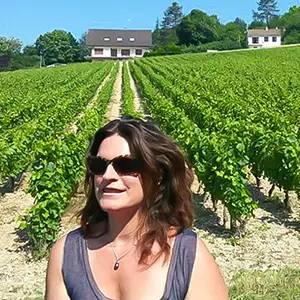There are places where time seems to slow down, where every sunrise brings the quiet hum of life in its most natural form. At the edge of Cap Corse, between wild maquis and Mediterranean breeze, lives a woman whose devotion to bees has turned into a poetic rebellion against industrial food and chemical shortcuts.
Marlène didn’t grow up dreaming of bees. Her early path led her through performance stages and children’s theatre, until one day, it was the insects that sparked a new calling. Today, she stands at the helm of Miel du Cap, producing raw, organic, deeply Corsican honeys, all shaped by the island’s dramatic contrasts and her uncompromising ethics. But what makes a honey truly exceptional ? What does “organic” mean when it comes to bees ? And how can a single jar tell the story of a whole landscape ? We sat down with Marlène to learn more about her work, her bees, and the land she loves.
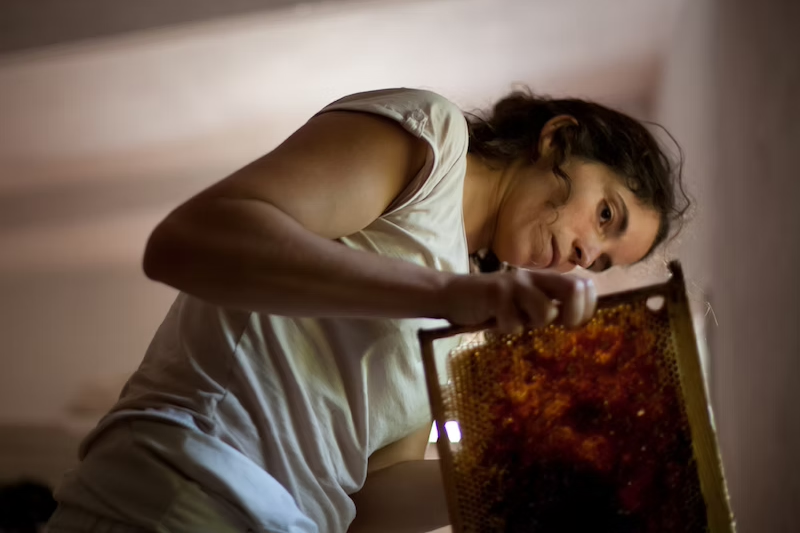
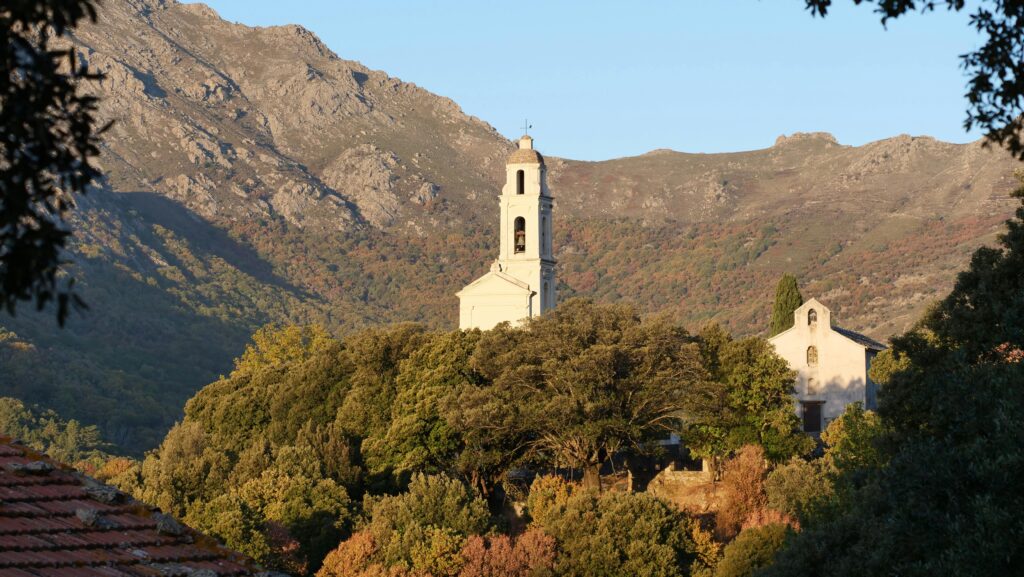
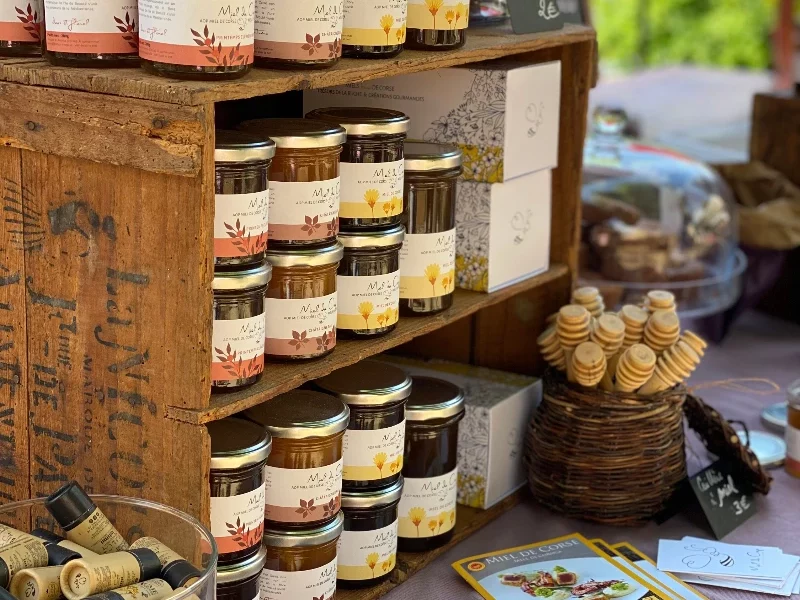
Who Is Marlène, and What Makes Her Honey So Distinctive?
Hello Marlène. For those who don’t know you yet : what was your very first contact with beekeeping, and what made you want to devote your life to it?
I come from a family of farmers, but I felt that this path, in its traditional form, didn’t quite suit me. I first worked in animation, then in live performance; a vibrant world, rich in emotions, but far removed from the land.
When I became pregnant, this connection to the earth grew stronger. That’s when I dove into the world of beekeeping: I read, talked with others, observed, trained myself…
Raising bees, the daily attention it requires, the patience, immediately resonated with me. I found my agricultural roots again but in my own way. And let’s be honest: bees are extraordinarily independent beings ! If I compare them to goats, they can literally live on their own for a month… and keep working without complaining. It’s a form of farming that deeply suits me.
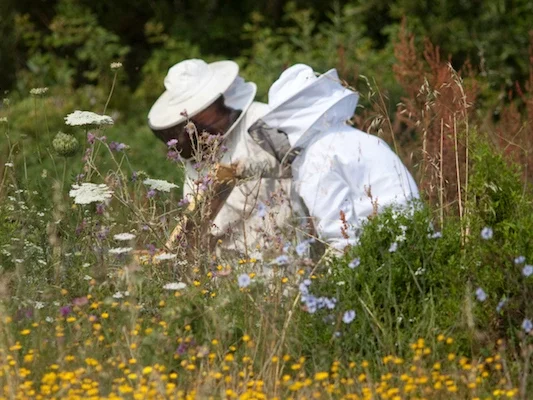
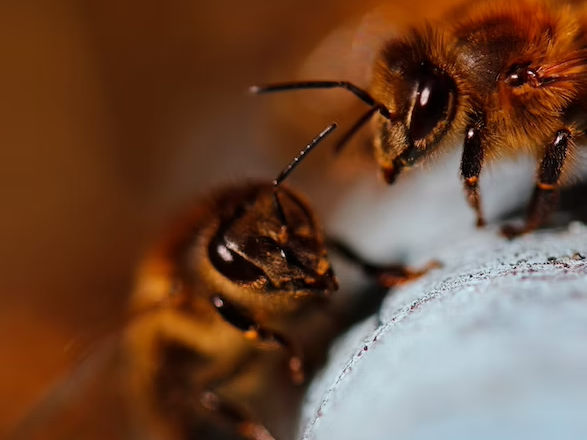
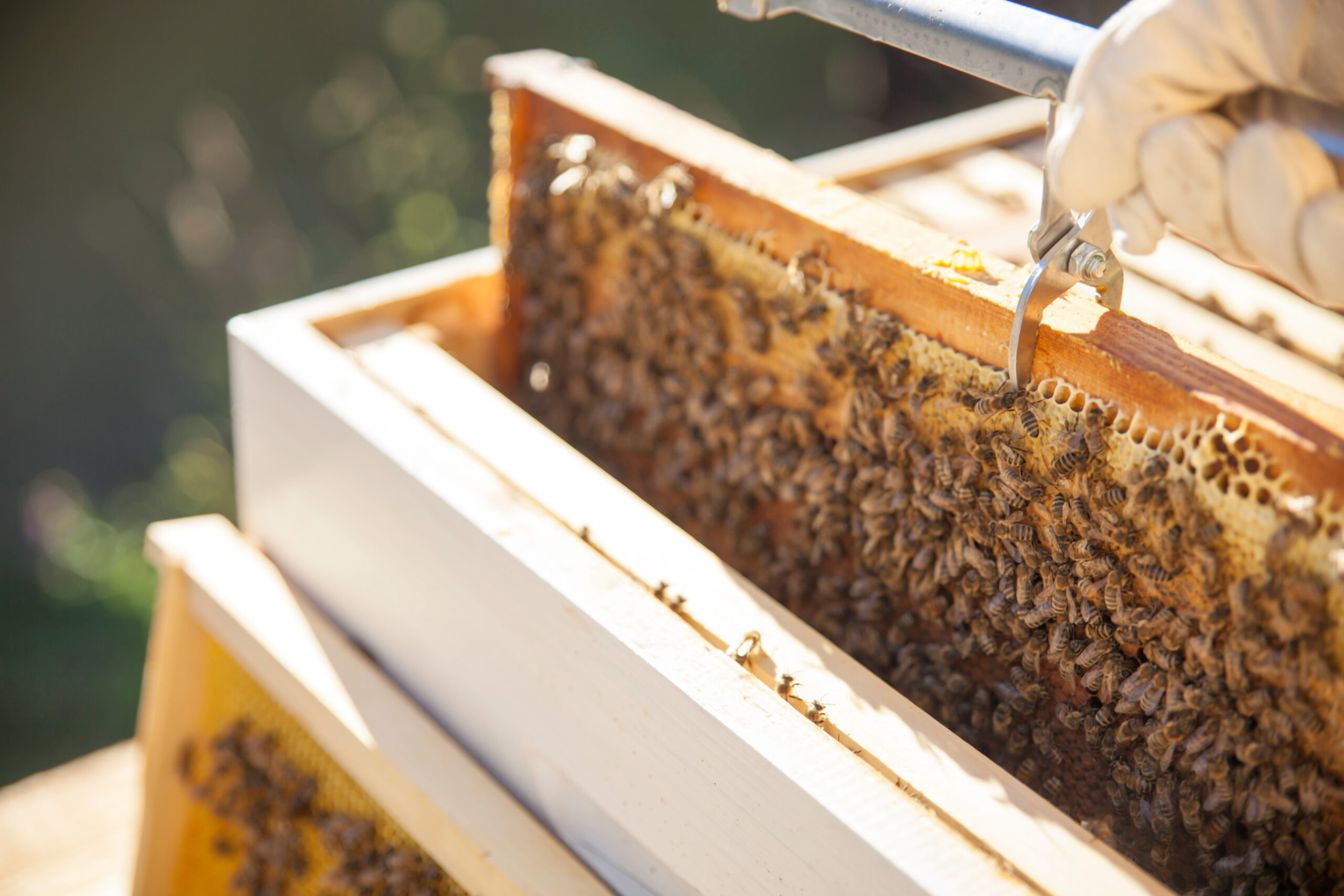
Today, the terms “organic” and “local” are often used freely. In concrete terms, what does it mean to produce organic honey, and why is it so demanding?
This is a question I try to answer often on my social media, but also in direct conversations with visitors. Because behind these words, there are real requirements… and sometimes, unfortunately, misuse. In organic beekeeping, for example, it is forbidden to feed bees with sugar (even organic sugar) except in cases of extreme scarcity, during climatic episodes that put the colony at risk. No sugar syrup stimulation is allowed. Bees must live off their own reserves, which requires careful and respectful management. But the biggest challenge is clearly the fight against Varroa, a formidable parasite that weakens bees and can ultimately destroy an entire hive. All beekeepers face it, but in organic farming, chemical products are not allowed. We work with natural treatments. It’s more demanding, more time-consuming… but also more consistent.
And then there’s everything else: even the materials we use (such as wax) must be certified organic. It’s much more expensive, but we do it because every jar must reflect a genuine commitment.
Corsica, with no intensive farming, seems ideal for organic beekeeping. How does this geographical isolation influence your production methods and the quality of your honey?
Corsica offers an exceptional setting for organic beekeeping. Nestled between sea and mountains, the climate is both mild and contrasting, which encourages almost continuous blooming. But beyond the climate, it’s the very nature of the land that makes all the difference. Each micro-region has its own flora. Here in Cap Corse, for example, the vegetation is particularly rich, diverse… and above all, unspoiled. A bee forages within a radius of about three kilometers from its hive. In organic beekeeping, this means the entire area must be free of agricultural pollution : no intensive farming, no chemical treatments. So it is the zones with wild flora, or possibly certified organic crops, that ensure truly pure honey. Cap Corse is, in this sense, an ideal land. There are no large-scale agricultural operations near my hives, which allows me to keep my bees in place all year round. It’s both an ethical and qualitative choice, and it directly reflects in the aromatic richness of our honeys.
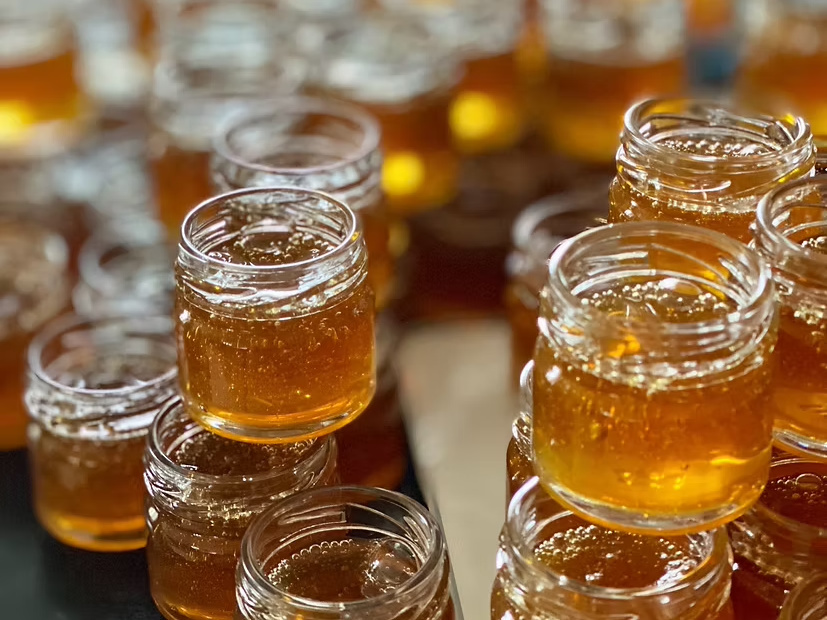
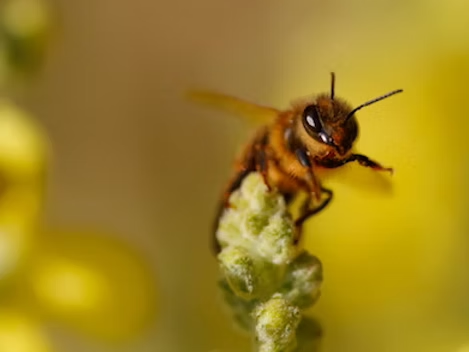
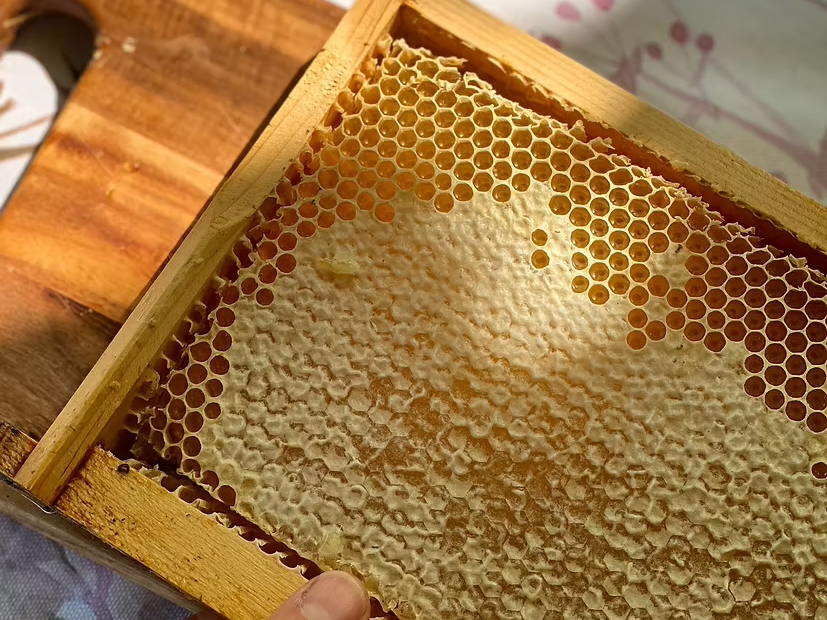
A Quick Deep Dive into the Complex World of Honey
In your opinion, how can one recognize an exceptional honey? What are the three criteria that truly make a difference?
First of all, it’s important to remember something essential: crystallization is a completely natural phenomenon. Many people mistakenly believe that crystallized honey is of poor quality, when in fact, it’s quite the opposite. Good honey crystallizes over time. If honey remains liquid for a very long time, it’s often because it has been heated or altered, which inevitably compromises its purity.
Next, there’s the botanical richness and the season. A spring honey won’t carry the same aromas as an autumn one—ours is often lighter and more floral, while fall brings deeper, woodier notes. But don’t be fooled by color alone: depending on the plants foraged, a spring honey can be surprisingly dark, and an autumn one unexpectedly pale. What matters is what the bees find—and how the land speaks through them.
And then there’s the AOP label, which is a true mark of quality. It means that strict specifications are respected, every step is monitored, and the honey genuinely expresses its origin. It’s a recognition of the work, the consistency, and the connection we maintain with the place and the bees.
Some of your honeys come from honeydew rather than nectar, which is still quite rare in the world of honey. For those unfamiliar, can you explain what sets honeydew honey apart, and what it brings in terms of taste?
Honeydew is not a floral nectar. It comes from a sweet substance secreted by small insects such as aphids or scale insects, when they feed on the sap of plants. This substance remains on the leaves or needles, and it is the bees who come to collect it. A well-known example is fir honey. It’s called that, but since fir trees don’t produce flowers, it’s necessarily a honeydew honey. This type of honey is often darker, less sweet, with woody, resinous notes, sometimes almost caramelized. It also has a denser texture, slower crystallization, and a higher content of trace elements than floral honeys. In terms of taste, it clearly stands out : deeper, more complex, with a real lingering finish.
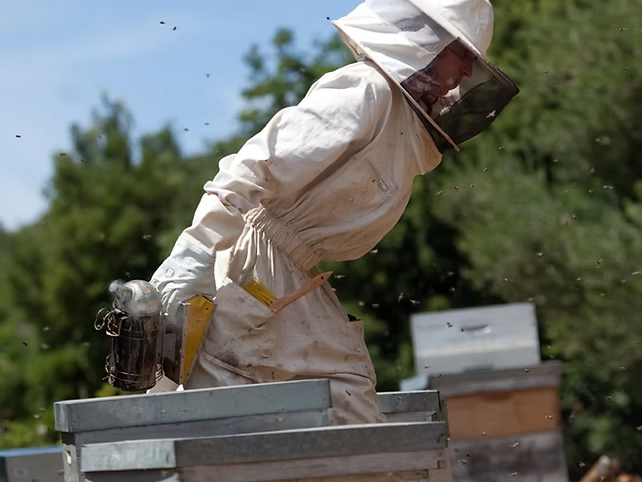
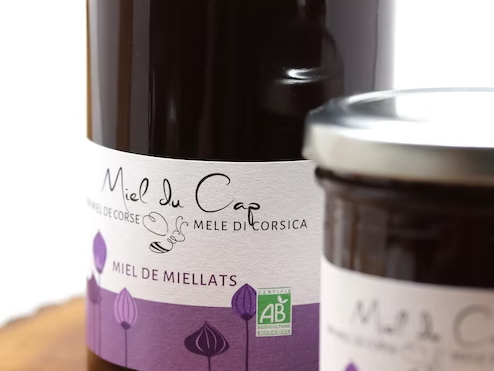
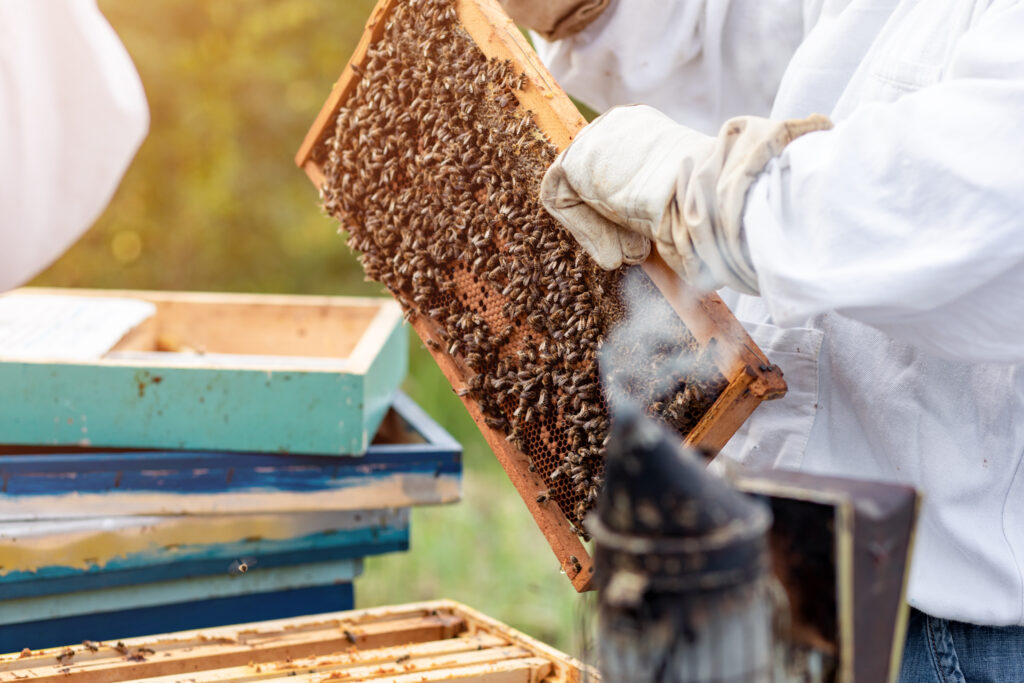
Are there taste differences from one hive to another?
Not significantly within a single apiary. A rucher typically includes around 30 hives, and since all those bees forage within the same valley and floral environment, the taste remains fairly consistent across the group. But between different ruchers, the story changes. Each of my apiaries is set in a distinct valley, with its own altitude, microclimate, and dominant flora. The honey from one may carry hints of chestnut and heather, while another leans toward myrtle, rockrose, or immortelle. That’s where the real variation emerges, each rucher becomes a portrait of its landscape.
More Than Honey: A Corsican Way of Expression
You’ve created recipes combining honey and Corsican products. Which one is your favorite?
That’s hard to say! I have a thousand in my head… and almost as many in my kitchen. I love experimenting, imagining combinations. I’m very fond of pairings with chocolate, I find it works really well. I haven’t finalized my “honey workshop” yet, but I spend a lot of time testing things at home. The kitchen quickly becomes a little gourmet lab… and in Corsica, we have so many fabulous products to play with !
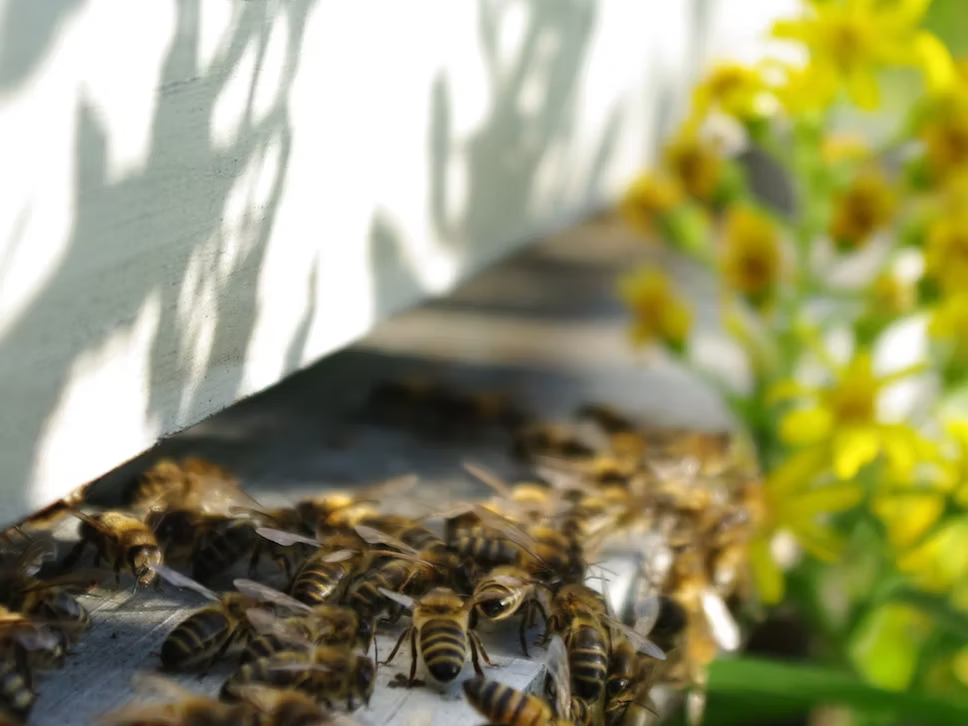
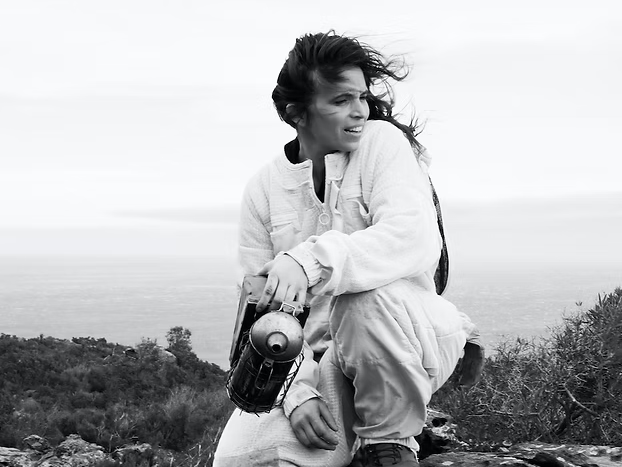
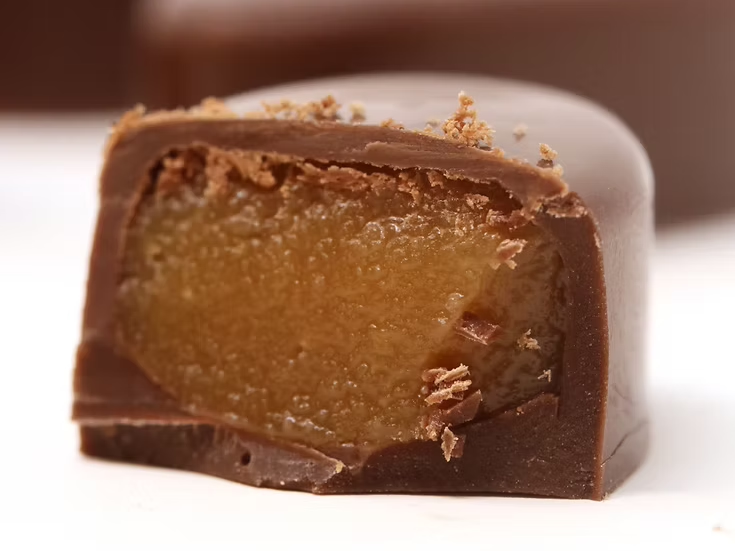
When you present your products, what makes you the proudest?
What makes me the proudest is having created my own business, being able to work with bees every day, and then spending hours in my kitchen imagining, testing, transforming. I love being there to present my products myself, to let people taste them, to tell their story. It’s a true joy to see the whole process through : from the hive, passing through social media, to the moment of meeting people.
Beyond your profession, if you were to invite someone to discover Corsica for the first time, what would you say to them? What is it that this island offers that is truly unique?
I think many people miss the true soul of Corsica by staying along the coast. Yes, the sea is beautiful, the photos are stunning… but real Corsicans are not seafarers, they are mountain people. The spirit of the island is found up there, inland. To feel the deepest essence of Corsica, you have to leave the beaches and head into the mountains. There, you’ll discover breathtaking landscapes, wild rivers, unspoiled nature… and above all, a living culture with a genuine attachment to the land. It’s another Corsica ; more discreet, but profoundly authentic.
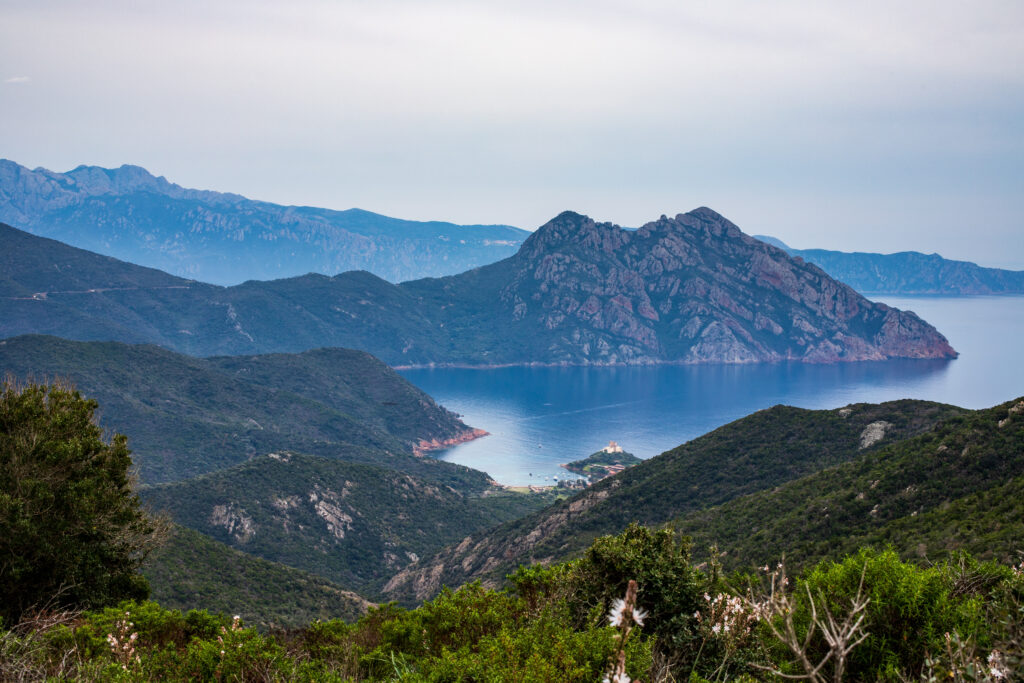
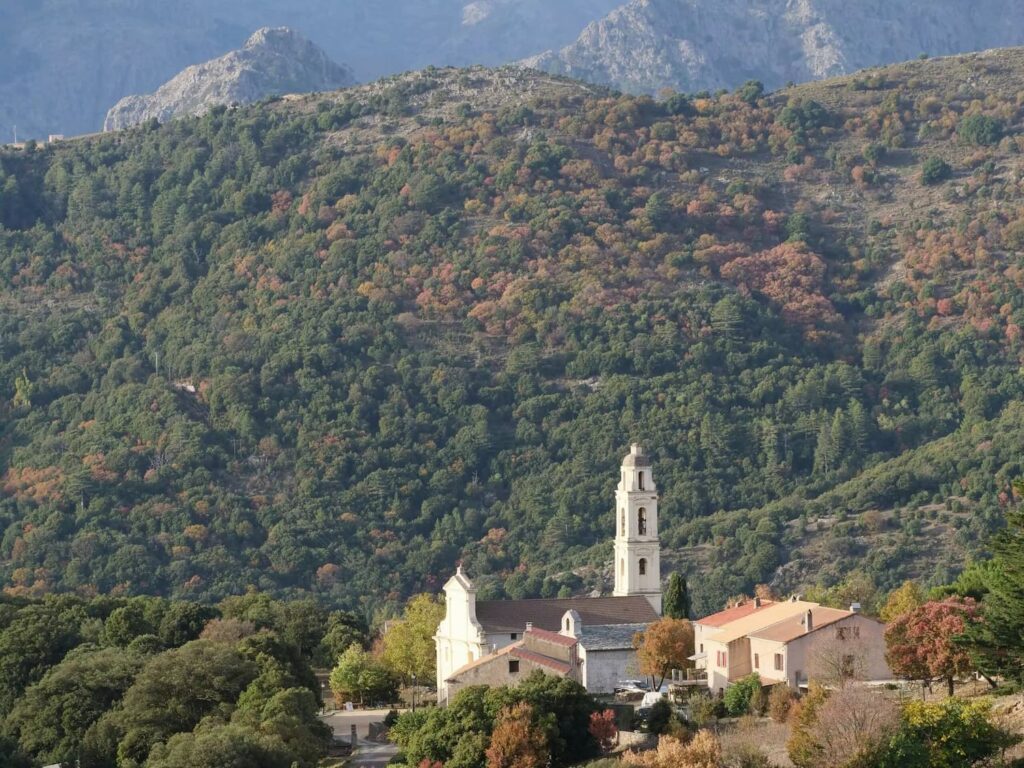
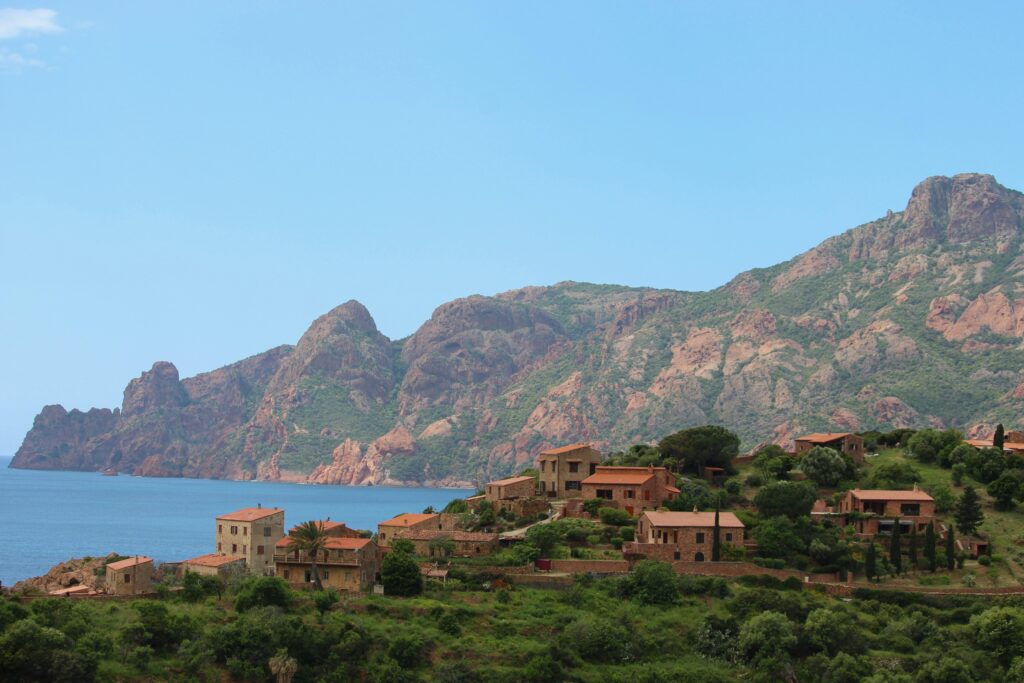
Final Words : When Honey Tells a Story
In a world rushing toward speed and standardization, Miel du Cap reminds us of something precious : that true taste takes time, that authenticity demands effort, and that nature, when respected, gives back in ways that are both powerful and poetic. Marlène’s honeys are not just sweet spreads. They are edible landscapes, shaped by wind, wildflowers, and the wisdom of a woman who listens more to her bees than to trends. And if you ever find yourself in Cap Corse, perhaps you’ll taste more than honey, perhaps you’ll taste the island itself.


